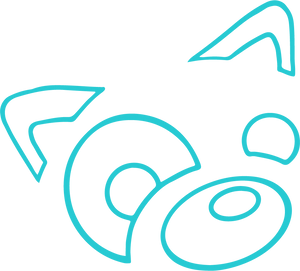Thyroid problems in dogs: Why iodine is crucial to your dog’s health
Thyroid issues in dogs — such as hypothyroidism — are common. Here’s why the right balance of iodine in your dog’s diet can help prevent thyroid problems in your pup.
What is Iodine?
Iodine is a trace mineral that is required in very small amounts for your dog. It can be found naturally in some foods, including fish, seaweed, eggs and dairy products. Table salt in North America is usually iodized to ensure adequate intakes, as this region tends to have low to no iodine present in the soil.
For dogs, iodine is important for thyroid health and function. The thyroid gland, located in the neck region, produces hormones (i.e. T3 and T4) in which iodine is a critical component. These hormones are involved in many metabolic pathways, including enzymes, protein synthesis, growth, and neurological function.
The thyroid knows when to produce thyroid hormones due to the Thyroid Stimulating Hormone (TSH). This is the hormone that tells the thyroid when hormone levels are low, promoting the production and secretion of more T3 and T4. This is an important process that protects your pup by ensuring adequate thyroid hormone levels. Because iodine is required in order for the thyroid to produce thyroid hormones, ensuring adequate iodine in the diet is crucial!
 Photo by Anna Dudkova
Photo by Anna Dudkova
"Iodine plays a crucial role in maintaining your dog’s thyroid health. Early detection and appropriate treatment are key to managing thyroid issues effectively. A balanced diet, like Tom&Sawyer’s delicious Italian Beef Pasta, can help ensure your dog receives the necessary iodine for proper thyroid function." - Dr. Joe Inglis, BVSc, MRCVS.
Dr. Inglis is a UK-based Veterinarian and expert in animal nutrition. He is also the founder of VetChef and collaborator on the Tom&Sawyer VetChef line of recipes found at www.vetchef.pet

Iodine Deficiency
Iodine deficiencies are often rare for dogs that consume complete and balanced pet foods (such as Tom&Sawyer’s yummy Italian Beef Pasta), however, there are certain cases where iodine deficiencies can occur.
An iodine deficiency can be detrimental to your pup’s health and should not be taken lightly. If there is insufficient iodine, the thyroid cannot produce thyroid hormones. This causes an elevation in TSH levels because thyroid hormone levels remain low. Overall, this results in what we call a goiter, which is a term used to describe an enlarged thyroid.
Chronic iodine deficiency can also result in hypothyroidism. Clinical signs and symptoms for hypothyroidism in dogs can include:
- Lethargy
- Weight gain (without appetite increase) and obesity
- Behavioural changes and cognitive issues
- Exercise intolerance
- Hair loss, shedding, and reduce coat quality
Hypothyroidism requires veterinary care and appropriate treatment. It is noteworthy to add that there are many causes for hypothyroidism, such as autoimmune disorders, and congenital or genetic issues, and these will all require medical attention.

Photo by Peter Schulz
Iodine Toxicity
An iodine toxicity results when your dog consumes high levels of iodine. There are safe upper limits recommended by both the National Research Council and AAFCO. Iodine toxicities are less common than deficiencies in dogs, though signs of a toxicity can include:
- Anorexia
- Vomiting
- Diarrhea
- Gastrointestinal tract upset
High levels of iodine have also been associated with both hypo- and hyperthyroidism and may be implicated with thyroid cancer risks.
Risk Factors for Improper Iodine Status
Although it can be rare for pups to exhibit an iodine deficiency or a toxicity, there are instances where the risk for both iodine deficiencies and toxicities can arise:
1) Feeding Primarily Homemade Diets
The risk for an iodine deficiency can be greater with homemade foods, specifically when they are made with non-iodized salts, or insufficient iodine-rich ingredients. Other issues are that some ingredients will vary in iodine concentrations, and without regular testing, it can be impossible to know the true content of iodine, and other nutrients, in the diet which could result in under- or over- supplementing.

Photo by Louis Hansel
2) Medium to Large Breed Pups
Iodine deficiencies are more commonly seen in medium to large sized breeds, and this is likely due to a greater need for thyroid hormones, especially during growth as large breed puppies have a lot more growing to do than their small breed counterparts. Unfortunately, though, there is a lack of research in this area.
3) During Growth and Reproduction and Lactation
Growing puppies, as well pregnant or lactating pups, may require greater levels of iodine in the diet. This is due to a greater demand for thyroid hormones. However, more research is required to understand their unique nutritional needs.
So now you see that Iodine is important because it helps maintain a healthy and functioning thyroid. Ensuring adequate iodine is essential for your pup’s overall health!
If you believe your pup to have a thyroid disease or issue, contact your veterinarian immediately.
Written by: Hannah Godfrey
Animal Nutritionist
BSc.H. | MSc. | Ph.D.
www.tomandsawyer.com
References:
Case L.P. et al. Canine and Feline Nutrition: A resource for companion animal professionals 3rd ed. May 19, 2010
Kritchevsky JE. Goiter in animals (non-neoplastic enlargement of the thyroid gland). Merck Manual Veterinary Manual. 2019.
National Research Council. (2006). Nutrient requirements of dogs and cats. Washington, DC. The National Academies Press.


